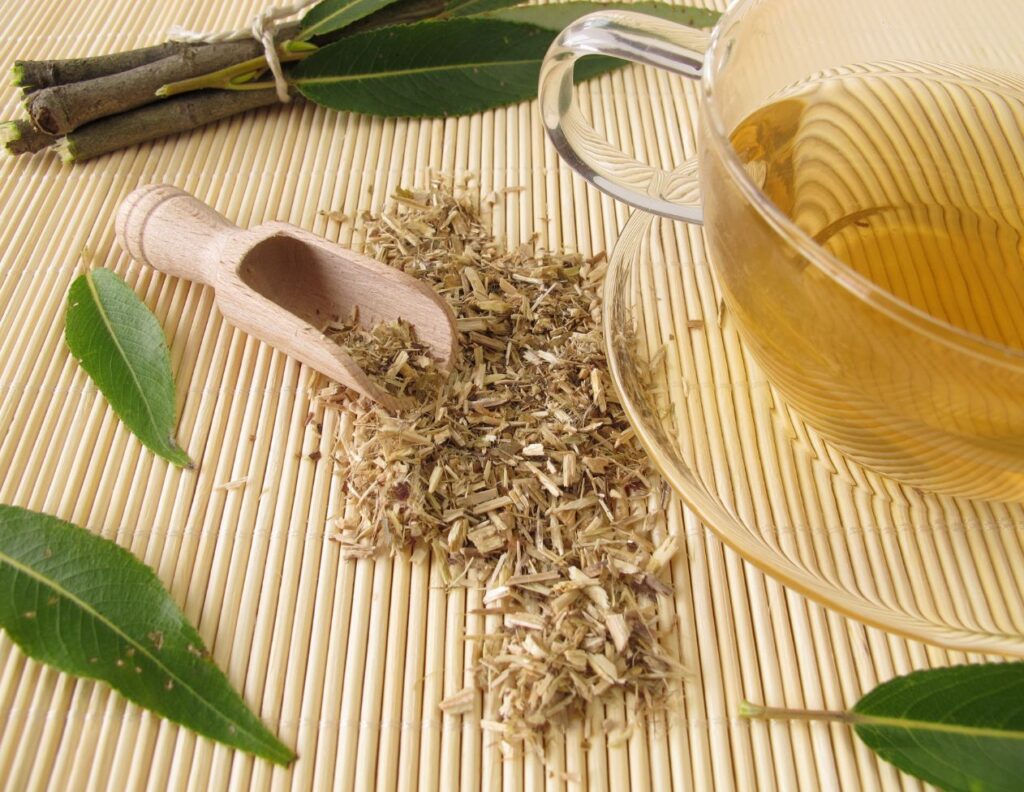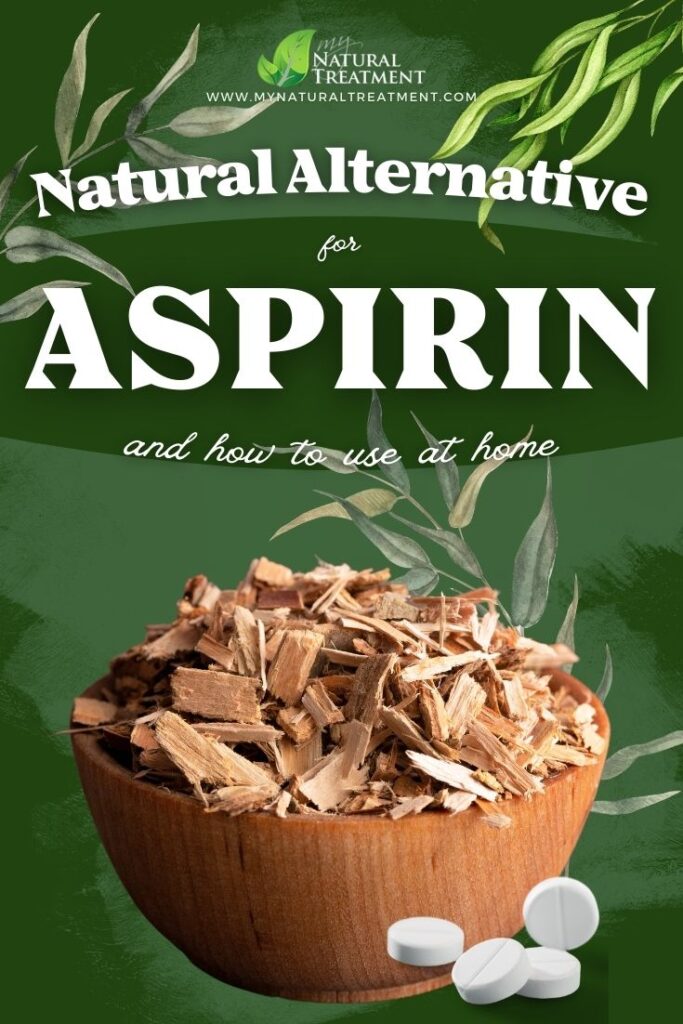Want to know what is the best natural alternative to aspirin? Continue reading this article and find out.
Willow bark (Salix alba, S. caprea, S. babylonica) is the precursor of one of the most common medical drugs on the planet, which we all know as aspirin. The reason is that willow bark contains a chemical substance called salicin, which has an anti-inflammatory effect. Salicin works in similar ways to acetylsalicylic acid. Before we show you how to make this natural alternative to aspirin, learn how to harvest willow bark.

How to Harvest Willow Bark
Remove pieces of bark from the young branches of a willow tree with patience, because it does not come off too easily. The best season to harvest willow bark is wintertime, when the tree goes into hibernation, or in April when the sap in the willow starts to flow once again after the long winter. Put the bark to dry, in a layer of 3-4 centimeters thick. When the willow bark completely loses its elasticity and becomes brittle, the drying process is over and it is stored in canvas bags or in glass jars. Some of the most common types of willow are white willow (Salix alba), goat willow (Salix caprea) weeping willow (Salix babylonica), all with similar medicinal properties.
How to Make a Natural Alternative to Aspirin
Put 2 teaspoons of dry powdered willow bark in a cup of water at room temperature and leave to macerate for 6-8 hours or overnight. Strain the cold maceration and set aside. Boil the remaining plant after straining it in another cup of water for 15 minutes, then allow it to cool for a bit. Strain and combine it with the cold maceration. Drink one cup of the warm decoction throughout the day, or when in need.
Willow Bark Decoction Uses
Drinking one cup of the willow bark decoction is a very effective remedy for treating flu symptoms, as it reduces fever, dizziness, headaches, and muscle pain associated with cold or flu. On another note, drinking half a liter (2 cups) of this willow bark decoction a day for two months is an excellent adjuvant in the treatment of thrombophlebitis and thrombosis in general.
Willow bark is not recommended in case of allergy to aspirin or anticoagulant treatments, as it can trigger an asthma or allergy attack and cause stomach bleeding, liver dysfunction, coagulation disorders, kidney damage, or anaphylactic shock. It can interact with certain sedatives and irritate the stomach if you drink alcohol while using it as a treatment.
Read Also: How to Make Aspirin at Home with Willow Bark
Did you know that willow bark is not just a natural alternative to aspirin, but also a natural alternative to Diclofenac for pain and inflammation? Indeed. If you’ve enjoyed learning about this natural alternative to aspirin and how to use it at home, please share this article. Stay healthy, naturally!
Share on Pinterest ❤️

